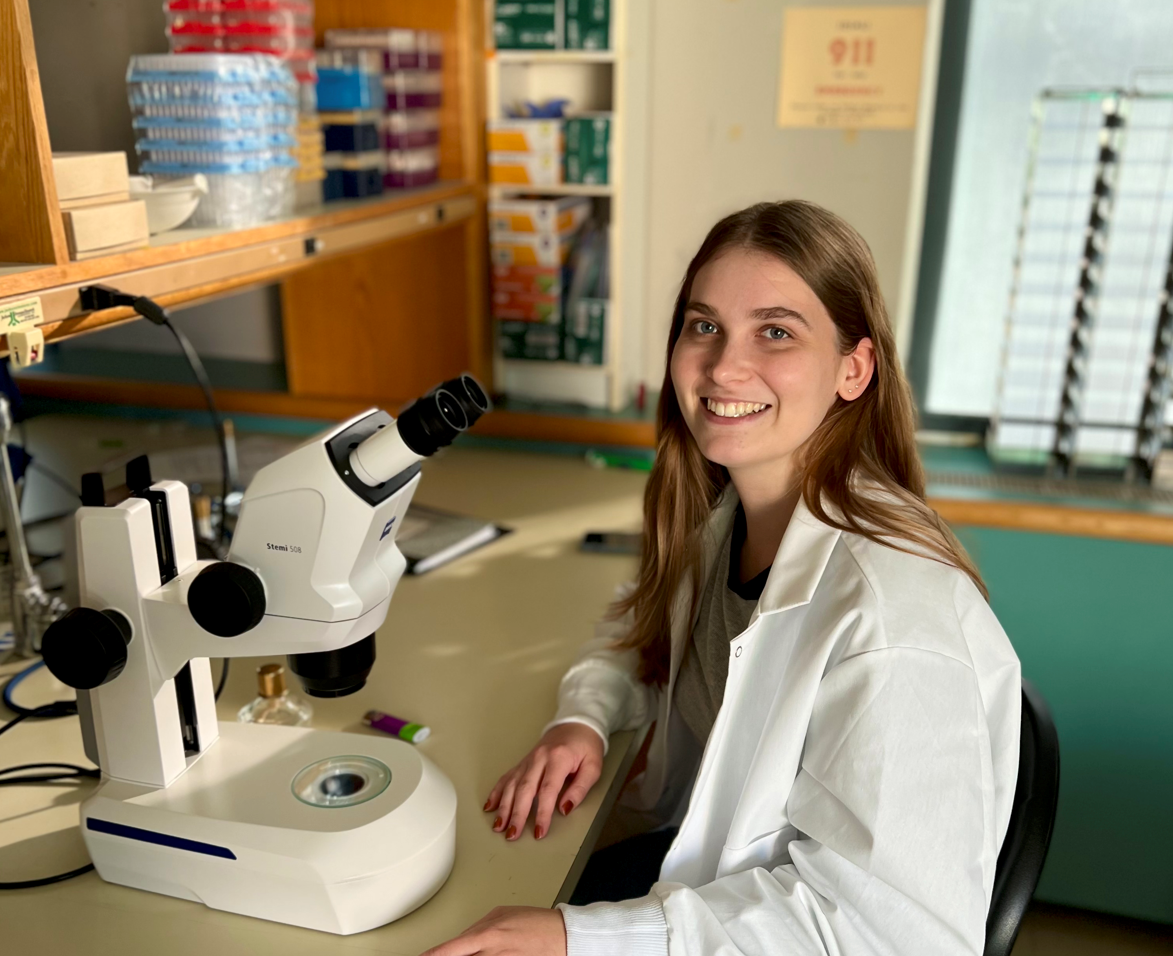
Student Spotlight: Timber Mattson
Timber Mattson has always been fascinated by cellular processes and how a single mutation can negatively affect an entire organism. “I am interested in learning about the effects of toxins, stress, and diet on mitochondrial function, and how that altered mitochondrial function can affect human health.”
“Mitochondrial activity is a determining factor in the aging process and the onset of several age-related diseases, such as Alzheimer’s and Parkinson’s disease. Activation of beneficial stress responses such as the mitochondrial unfolded protein response (UPRmt) due to the loss of electron transport chain (ETC) subunits has been shown to lengthen lifespan and and slow down age-related disease onset in the model organism Caenorhabditis elegans.” Mattson’s research specifically focuses on using RNA interference (RNAi) to block ETC genes and determine what effect that has on the lifespan of C. elegans. The purpose of the study is to “deepen our understanding of how changes in oxidative phosphorylation impact the UPRmt and the aging process.”
Mattson is working with faculty mentor, Dr. Suzanne Angeli, Assistant Professor of Molecular and Cellular Biology. “Working with Dr. Angeli has given me a chance to work independently while also having a mentor to rely on if I need guidance or have questions.” Mattson says Dr. Angeli’s encouragement led her to submit a proposal to the Center for Undergraduate Research (CUGR) Fellowship program. “My goal is to contribute to the development of effective treatments for disorders caused by mitochondrial dysfunction.”
Mattson’s advice for anyone considering getting involved with research is to “choose something you care about! Find a lab or professor who’s research focus interests you. Collaborate with those around you and don’t be afraid to reach out to students or professors with questions, especially when work or research opportunities arise.”
